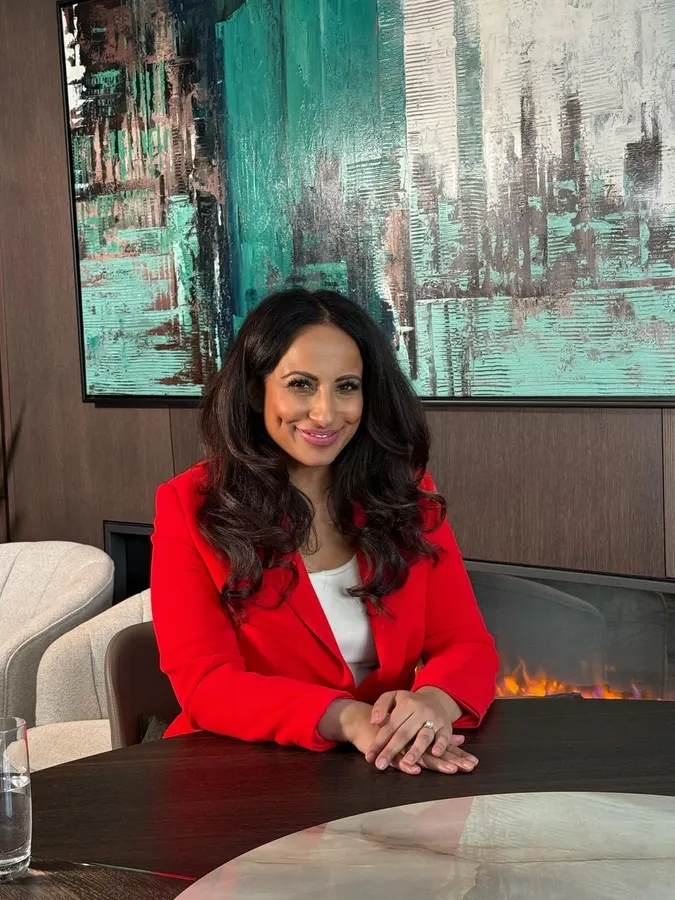Copyright forbes

After entrepreneur Rupa Popat exited her e-commerce company in 2019, she started investing in startups and female and minority-run venture funds. The strategy was about democratization, diversification and finding people with unique insights. Popat calls it “the emerging manager strategy.” She approached one venture capitalist, Pocket Sun of Sogal Ventures, about making an investment in Sun’s fund. Instead of simply saying, “yes,” Sun challenged her: “Why don’t you launch a fund?” “My face just dropped,” said Popat. But she started thinking about it. Popat, Sun and a few other VCs about represent a new archetype of the global VC — female, entrepreneurial, and network-driven. They are bridge builders, between people, across countries and regions, and in the way they can ally returns and purpose. Many of them manage expectations for big returns – that’s always true in venture capital – with a broader sensibility of doing good in the world. That might be through investing in companies that democratize important economic sectors, looking a startup founders through a diversity lens, or driving innovations in areas and regions that male VCs haven’t prioritized. “I went on to be the only solo GP ever to be backed by the British Business Bank,” Popat said in an interview. “That tells you how much the industry is changing — we’re proving that different kinds of people can run funds and deliver returns.” MORE FOR YOU Heather Henyon and Susan Choe are other examples. (If you know of others please drop me a line at emacbride@nbdispatch.com). Popat’s fund, Arāya Ventures, began deploying money into future of business startups, including in health care and fintech, last year. Investments include Echon and Research Grid. Now she is going global, with a new fund emphasizing the GCC. “I spoke at LEAP in February, and I've been back every month since, almost. I realized that there is a huge opportunity there right now in the ecosystem. Is The Gulf Really An Emerging Market Anymore? In fact, the Middle East is the only emerging market showing strength against a backdrop of early-stage funding decline, according to a report from research firm Magnitt comparing Q1 2024 with Q1 2025. In the Middle East, funding rose 65% year over year, while it cloned 23% overall across emerging markets, “dragged down by a sharp pullback in Southeast Asia.” In the Middle East, Saudi Arabia is at the top. Startups there raised $750M in capital in 2024, in 178 deals. For perspective, there were more than 14,000 VC deals in the United States in 2024; the U.S.’s population is about 10 times larger. However, the openness to change that is sweeping over Saudi Arabia is driving interest in the country. Though it remains an autocracy, Saudi Arabia has seen a huge loosening, with women’s workforce participation on the rise and reports that criticism of the government is more common. Free speech, free movement of talent, and a lively marketplace of ideas support early stage innovation. Breadth Helps Find Markets Popat talks about democratization – a customer orientation that harkens back to the more idealistic days of venture investing, before customer service on the part of startups became lip service on the way to profits for limited partners. “There's more diverse views and more diverse thoughts coming in about how things should be built. More diversity in decisions being made from an investment perspective, which will feed through into the company, which will feed through ultimately to the customer as well,” she said. “Then all of a sudden you'll have different types of businesses with different purposes being built as well.” Diversity may end up being a key attribute of companies that succeed in building AI applications. “When we look back over the next few years, we will realize that AI is disrupting every element of the way that we live and work. And what we do is we look for the needle movers. So how can this particular startup really move the needle for the customer they're serving?” Of course, it is early days for Popat who launched her first fund only a year ago. But her track record and quick growth suggest she is someone to watch. A Series of Recent Funds Her network of funds and startup-related businesses includes: Arāya Super Angel Fund, a $26.3m seed and pre-seed venture fund focused on the UK, with a 20% global bucket, that invests in startups working in fintech and healthtech, among others. A new global fund, Arāya Global Fund - in which Popat and Mitul Ruparelia are partners, that aims to raise $30m, which has just closed $8.25m. “It's a much larger kind of operational fund. And we've allocated a third of that to the GCC market,” said Popat, who has launched that A third fund, Arāya Sie Fund, managed by VC Triin Linamagi, aiming to raise an additional $45 million to back female founders running purpose-plus-profit companies. CK Popat also runs a ĀVA Investment Academy, an angel investment academy in the UK. Some of the startups the firm has invested in include: Echon, a health AI diagnostics business that offers people who are proactive about their health an insurance benefit; Sando, a health AI data company that is enabling drug discovery for rare diseases Research Grid, which is doing AI automation of clinical trials Living The Pain Point Popat had lived the challenge of being a woman trying to raise money herself. As a serial entrepreneur who launched several tech businesses, she had tried to raise money, to no avail. “I mean, we talk about it today, you can imagine in 2013 there was no stats, there was no... there was no women, there was no female investors that I came across on the journey at the time.” Eventually, she built a company without external funding. She founded Future Trends Group, which became a successful UK-based e-commerce company and was acquired in 2019 by a Hong Kong listed company called Pico Group. Her experience as an entrepreneur gives her insight into how AI can change business operations. “Now, I know retailers' tech stacks... like if you get into a project, you're stuck for three to six months integrating your software inside,” she said. “But (the right AI tool) can integrate really quickly. In their first pilot of one of our recent investments, they saved a retailer um, half a million pounds on one garment correction at the merchandising level. That data then feeds in all the way to customer, so that customer returns data feeds back.” “With just a small amount of incremental work, the startup is able to have a huge impact on that retailer.” Now the question will be whether she can deliver on the early momentum while expanding successfully globally. But she’s moving into growing areas with a strong network to help. For long-term investors, that is often the poker stakes of success. Editorial StandardsReprints & Permissions



